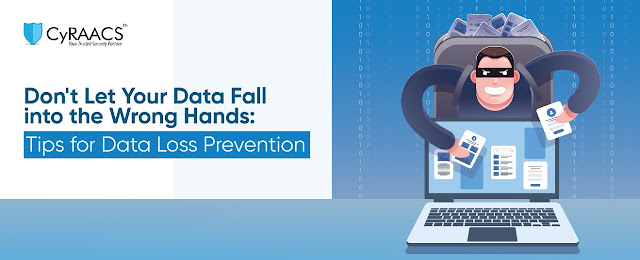Don't Let Your Data Fall into the Wrong Hands: Tips for Data Loss Prevention
In today's digital age, our data is one of our most valuable assets. Unfortunately, it is also one of the most vulnerable. Data loss can occur through a variety of means, from malware and hacking to physical damage and accidental deletion.
Data breaches have been increasing in number over the past few years. In 2016, there were 1,000 reported data breaches which led to the exposure of 46 million records. However, in 2022, there were 2,000 reported data breaches which resulted in 152 million exposed records. This just goes to show how much more important it is now to take steps to protect your information.
What is data loss prevention?
Data loss prevention (DLP) is a critical function in protecting data from unauthorized access and destruction. DLP can be applied to any type of data, including personal, corporate, and government information. DLP can be applied to any type of data, including personal, corporate, and government information. DLP can encompass a wide range of technologies and security measures, from basic firewalls and encryption to full-blown data protection solutions. In order to prevent data loss, organizations must have a comprehensive understanding of their dataflow and how it can be vulnerable to attack. DLP technologies can help identify and prevent data breaches, which can lead to costly losses for organizations.
Why it's important to keep your data safe
Keeping your data safe is important for a few reasons. First, it can protect you and your company from identity theft and other financial crimes. Second, it can help you keep track of your customers and their habits. Third, it can help you analyze your business data to improve your operations. Fourth, keeping your data safe can protect your intellectual property. Finally, keeping your data safe can help you build a strong customer base.
What can happen if you don't have data loss prevention?
Without data loss prevention, your business is at risk of losing important data, such as customer information, financial records, and intellectual property. If a breach occurs, thieves could potentially access this information and use it for their own gain. By taking steps to protect your data, you can help safeguard your business against potential damage and ensure that your valuable information remains safe. If you're not careful, data loss can happen to anyone. Whether it's a simple mistake or a malicious act, data loss can have serious consequences.
How to keep your data safe?
Data breaches are becoming more common, and with each new data breach, corporations and individuals alike are learning that data safety is a top priority. If you're like most people, you're constantly storing and accessing your data on your computer, phone, or tablet. But with all the new technology that's come out in the last few years, it's more important than ever to keep your data safe. Here are some tips to keep your data safe:
1. Always use a secure password: The first step in keeping your data safe is to always use a secure password.
2. Be proactive about data security: Make sure you have up-to-date antivirus software and an effective firewall to protect your computer from online threats.
3. Back up your data regularly. Regular backups will help you restore your information if it is lost or stolen.
4. Be aware of who has access to your data and who they are.
Tips for data loss prevention
It's no secret that data breaches are becoming more and more common. In fact, it seems like hardly a week goes by without another major company announcing that its customers' data has been compromised. While it's important to keep up with the latest security news, it's also important to take steps to prevent your own data from being compromised. Here are some tips for data loss prevention:
1. Use strong passwords and change them regularly.
2. encrypt your data.
3. Use a secure connection when accessing sensitive data.
4. Be cautious about what information you share online.
5. Keep your software up to date.
6. Backup your data
The best way to prevent data loss is to have a comprehensive plan in place that covers all the potential ways data can be lost. From physical theft and hardware failure to software vulnerabilities and user error, there are many ways data can be lost or stolen. By implementing the proper security measures and procedures, you can help ensure that your data is safe and secure.
At CyRAACS, we pride ourselves on being a cyber risk advisory and consulting service that provides robust and sustainable cybersecurity solutions to organizations. We are cert-in empanelled company in Bangalore for Information Security Auditing, and we provide best-in-class security consulting services in the areas of cybersecurity, data privacy, risk management, and technology.




Comments
Post a Comment